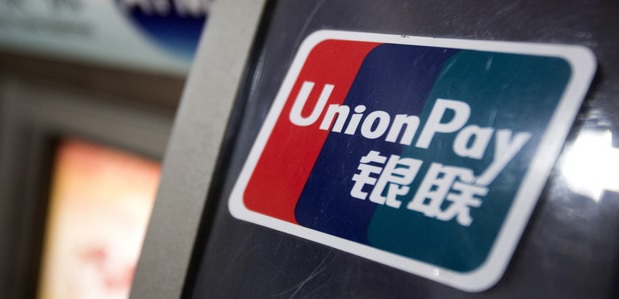
World’s biggest payment card issuer challenges US rivals Visa and Mastercard. Founded under a charter from the People’s Bank of China in 2002, UnionPay has a virtual monopoly on bank card payments in its domestic market, where it has issued 6bn cards — more than Visa and Mastercard combined. China UnionPay cards are accepted by more than 41m merchants and 2m ATMs in 170 countries.
China UnionPay, the world’s biggest payment card issuer, is preparing to launch branded cards in the UK, the first step in a wider European expansion plan to challenge its US rivals Visa and Mastercard in one of their key markets, according to Financial Times.
The move comes as UnionPay faces intense competition in its home market from digital payments groups Alipay and WeChat Pay. It is also likely to add to the frustration of its US rivals, which have spent years trying to enter the Chinese market. The Chinese state-controlled group will team up with a UK company as early as next month to start issuing virtual pre-paid cards for British corporate clients to give to their staff for use via a mobile wallet when travelling in Asia. This will be followed by more deals to issue UnionPay branded credit cards elsewhere in Europe as early as December.
“In Europe we want to target local customers in the domestic market, not only people travelling to Asia” said Zhihong Wei, head of UnionPay in Europe.
Founded under a charter from the People’s Bank of China in 2002, UnionPay has a virtual monopoly on bank card payments in its domestic market, where it has issued 6bn cards — more than Visa and Mastercard combined. The Chinese group has been expanding internationally in recent years, mostly in Asia, and its cards are accepted by more than 41m merchants and 2m ATMs in 170 countries.
It first moved into Europe a decade ago to provide access for Chinese tourists and its cards are now accepted by 60 per cent of merchants and ATMs in the region. It has offices in Paris, London, Madrid, Milan, Frankfurt and Budapest, with another set to open in Stockholm.
Mr Wei said it did not need a licence for its European expansion plan as its cards will be issued by third parties, such as banks, and its transactions will be handled by payment processing groups.
Six years after the World Trade Organization ruled that China discriminates against foreign payment groups, Visa and Mastercard have applied to Beijing for licences to clear renminbi payments but are awaiting approval. UnionPay operates with a business model similar to Visa and Mastercard, earning a commission on each card swipe.
The currency-printing unit of the PBoC is its largest shareholder, with the remaining equity mostly held by state-owned financial institutions. But the rise of mobile payments in China — dominated by Ant Financial’s Alipay and Tencent’s WeChat Pay — has dislodged UnionPay from its dominant position in electronic payments. Beyond the loss of fee income, the group is also losing access to valuable transaction data from consumers who have switched from plastic to mobile phones.
However, Mr Wei said UnionPay was regaining ground on its digital rivals with its QuickPass system, which uses Near Field Communication (NFC) chips of the type used at subway turnstiles around the world and contactless card payments in the US and UK. The move to issue UnionPay-branded cards in Europe comes seven years after London department store Harrods became one of the early UK retailers to install a UnionPay point-of-sale terminal, prompting a spike in sales from Chinese students and tourists who were able to spend directly from their Chinese bank accounts.
Banking 4.0 – „how was the experience for you”
„So many people are coming here to Bucharest, people that I see and interact on linkedin and now I get the change to meet them in person. It was like being to the Football World Cup but this was the World Cup on linkedin in payments and open banking.”
Many more interesting quotes in the video below: